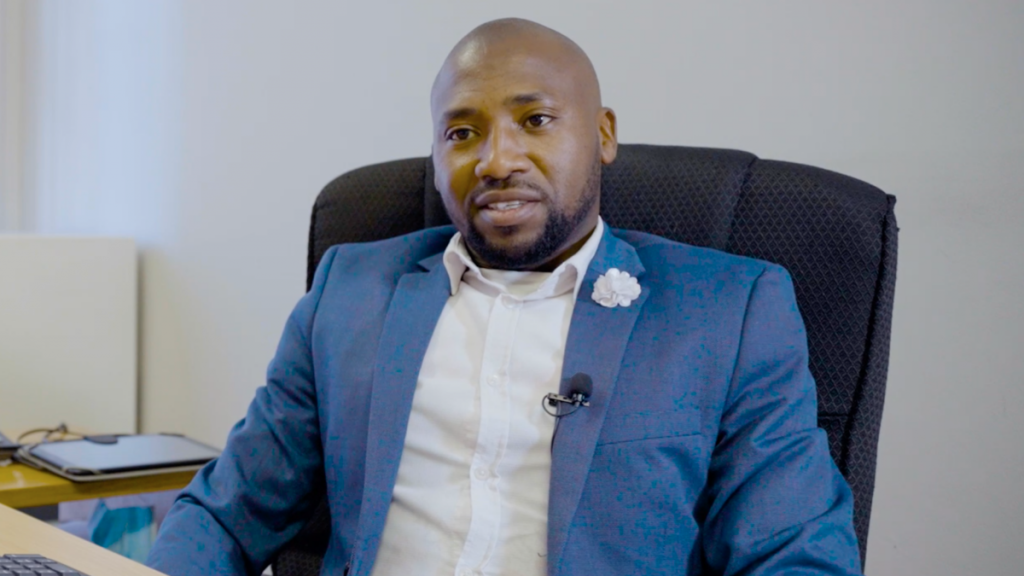In a move that signals a major leap forward in generative AI, OpenAI has quietly rolled out ChatGPT-5, its most advanced model to date….
Can ethics in business bring South Africa back from the cliff edge?

Speaking at the recent E Squared – Gordon Institute of Business (GIBS) event on SMMEs and their Ethical Ecosystems, Founder of E Squared portfolio company CapeBio, Daniel Ndima, asked corporate South Africa, “Are we serious about ourselves and our future?” Also there representing South African SMMEs, Ajay Lalu’s (CIRT/Q-Hop Founder) said that “Unless we all accept some responsibility, we will be too late to bring South Africa back from the cliff edge.”
The feeling in the auditorium that morning of Monday 22 August was a little bleak and both the speakers and the audience seemed to be pleading for more responsible leadership to steer the ship. Ajay said, “We need individual and collective responsibility to act ethically in the little things, and a moral obligation to create a more equitable business environment for entrepreneurship to thrive in South Africa.”
For a company like CapeBio – an innovative bio-discovery research company, a leader in molecular enzymes and locally made PCR diganostics – market penetration in South Africa has been far more difficult than in other SADC countries where interest in high-quality, affordable products that can be localised have been given priority by governments. Even penetration in overseas markets has been less complex by comparison.
According to the Concentration Tracker Summary Report 2021 (Competition Commission), the dangerously high concentration of turnover in the top 10% of companies in South African industries reflects that SMMEs have little chance of success, which is why E Squared is taking early-stage businesses like CapeBio and Consumption Information Real Time (CIRT/Q-Hop) and providing them with seed capital to scale.
Businesses with an Allan Gray Fellow Founder like Daniel Ndima, also receive business support, and access to networks and strategic advisory.
In 2019 E Squared invested into CapeBio following a term in the then E2 Accelerator programme, and a further investment was made helping them to become frontline responders in the pandemic; developing locally produced PCR test kits that reduced the need for imports and allowed for a faster testing process (little over an hour).
They entered the market at a much lower price than international products but with the same or arguably better quality; driving the cost down in the market, something no other company could achieve for the South African consumer during this time. Yet local uptake remained a challenging hurdle.
There is an undeniably clear and strong case for sourcing locally if we can just get our act together. As Daniel said at the E Squared-GIBS panel, “There are opportunities to open our value chains which can be assisted by big business.”
CapeBio makes a point of being intentional about their own procurement practices, right down to the packaging and can see the benefits. He is keen to engage with larger role players in the healthcare space and to understand the beneficiation processes of healthcare providers so that they can capitalise on this aspect to the benefit of all.
The biotechnology sector touches millions of people throughout South Africa and Africa, and is in dire need of disruption, higher productivity, and improved value chain efficiencies.
A business like CapeBio provides a unique opportunity to generate tremendous impact in many African lives through the cost and efficacy of research and the potential to transform scientific research and development in countries across Africa which leads to improved health outcomes and thereby improve the quality of life for millions of people.
The CapeBio concept was originally started as a project at the CSIR (2015) to develop best-in-class reagent enzymes from locally sourced microbial material found in biodiversity hotspots. Daniel Ndima was part of the CSIR team who developed the enzymes and tested them for commercial viability with over 300 researchers (end-users) in multiple African countries.
In response to COVID-19, CapeBio focused their efforts on the production of rapid testing kits but Daniel’s business is now shifting to building the foundations of their broader diagnostic portfolio and biodiscovery for therapeutics offerings. For this reason, networking in the value chain then becomes increasingly urgent.
Daniel is a recipient of multiple awards and scholarships for his excellence in academics, social responsibility, leadership, and entrepreneurial initiatives. In addition to being an Allan Gray Fellow he is also a beneficiary of the Mandela Rhodes Scholarship, a Brightest Young Minds (BYM) and CSIR Alumnus, was nominated Standard Bank Rising Star, is the founder and former Executive Chairman of Achievers Elevation, founded 3 enterprises as an undergrad and was awarded the Vice Chancellor’s Award at the University of the Western Cape. More recently President Cyril Ramaphosa awarded CapeBio with the Black Industrialist Excellence Award for Best Innovation and Technology and he also made it onto the M&G’s 200 Young South Africans 2021 list.
Daniel is determined to grow CapeBio into a sustainable business and help rebuild our economy. This young founder’s values, attitudes, drive and humility epitomise the spirit of entrepreneurship that leads to sustainable business – business that will bring us back from the cliff edge. Let’s support these types of responsible entrepreneurs through holding each other to a higher standard of ethics in business.
Company Office is a subscription-based press office service.


